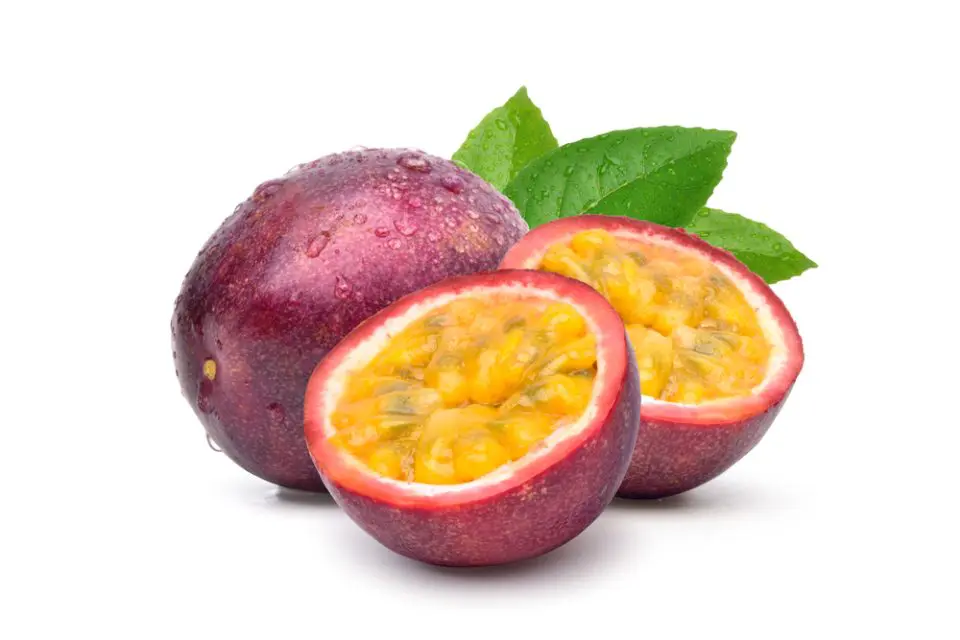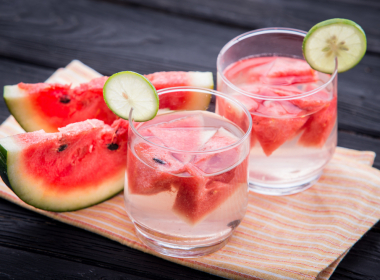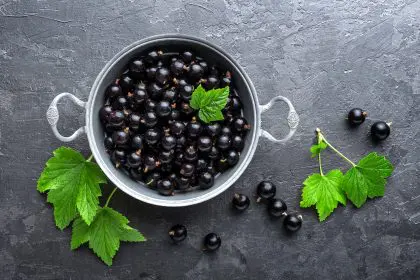A comprehensive guide to understanding and maximizing this tropical fruit’s protein potential

Introduction to fruit-based protein
As the world shifts towards plant-based diets, finding diverse protein sources has become a growing trend. Among the many options available, one fruit stands out for its surprising protein content, passion fruit. This tropical fruit is changing the way we think about protein sources, offering a unique blend of nutrients that can benefit anyone seeking to incorporate more plant-based protein into their diets.
Understanding passion fruit’s protein profile
Passion fruit is often celebrated for its vibrant color and tangy flavor, but it is also a nutritional powerhouse. While fruits are typically not associated with high protein content, passion fruit defies that expectation, providing a solid dose of protein along with other essential nutrients.
Nutritional breakdown
One cup of passion fruit contains about 5 grams of protein, making it a significant plant-based protein source. In addition to its protein content, it is rich in:
- Essential amino acids
- Dietary fiber
- Vitamins such as vitamin A and vitamin C
- Important minerals like potassium and magnesium
This combination of protein and nutrients gives passion fruit a well-rounded nutritional profile that benefits overall health.
Comparative analysis
When compared to other common protein sources, passion fruit holds its own. For example, one cup of passion fruit provides a similar amount of protein as one egg. It also surpasses most other fruits in protein content. For those looking for plant-based protein sources, passion fruit stands out as a nutritious, easy-to-incorporate option.
Not only does passion fruit deliver protein, but it also provides a full range of essential nutrients, making it a complete package for those seeking healthier snack and meal options.
Health benefits beyond protein
Passion fruit is not just about protein. It also delivers a wealth of additional nutrients and health benefits, making it a valuable addition to any diet.
Nutrient density
Passion fruit’s nutrient density is one of its most appealing aspects. Along with its protein content, passion fruit boasts high levels of:
- Vitamin C: Known for boosting immunity and skin health
- Fiber: Contributing to better digestion and improved satiety
- Antioxidants: Helping to fight oxidative stress in the body
- Essential minerals: Such as potassium, magnesium, and iron
These nutrients work together to support overall health and wellness, making passion fruit an excellent choice for those seeking a nutrient-dense snack or meal addition.
Functional benefits
Passion fruit’s health benefits extend beyond just providing vitamins and minerals. This fruit has been shown to help with:
- Improved satiety: Due to its high fiber content, passion fruit can help keep you feeling full longer, which can be especially beneficial for weight management.
- Enhanced digestion: The fiber in passion fruit aids in maintaining healthy digestion, helping to prevent constipation and support gut health.
- Better nutrient absorption: Passion fruit’s vitamin and mineral content supports the body’s ability to absorb and utilize other nutrients more effectively.
- Increased energy levels: With a balanced mix of carbohydrates, protein, and essential nutrients, passion fruit can provide a natural energy boost, making it an ideal snack before or after a workout.
Incorporating passion fruit
Passion fruit’s versatility makes it easy to incorporate into various meals and snacks. Whether you’re looking to add it to smoothies, top off your yogurt bowl, or enjoy it fresh, there are plenty of ways to enjoy this fruit’s many benefits.
Consumption guidelines
For optimal health benefits, it’s recommended to consume passion fruit daily. While the exact serving size will depend on individual dietary needs, one cup is a good starting point. Passion fruit can be enjoyed at any time of day, whether as part of a meal or as a snack between meals.
Proper storage is also important to maintain the fruit’s freshness. Store passion fruit in a cool, dry place, and if it’s cut, refrigerate it in an airtight container to extend its shelf life.
Preparation methods
Passion fruit can be enjoyed in a variety of ways, including:
- Fresh consumption: Simply cut the fruit in half and scoop out the pulp and seeds to enjoy its tangy flavor.
- Smoothie integration: Blend passion fruit with other fruits and vegetables to create a refreshing, nutrient-packed smoothie.
- Bowl toppings: Sprinkle passion fruit pulp on top of acai bowls, oatmeal, or yogurt for an added burst of flavor and nutrition.
- Culinary applications: Passion fruit can also be used in cooking, such as in dressings, sauces, or desserts, adding a tropical twist to various dishes.
Alternative protein-rich fruits
While passion fruit is an excellent source of protein, it’s not the only fruit that can help meet your protein needs. Other fruits that provide significant amounts of protein include:
- Avocado: With 4.5 grams of protein per cup, avocado is another high-protein fruit that also provides healthy fats.
- Guava: Offering 4 grams of protein per cup, guava is a tropical fruit that is also rich in fiber and vitamin C.
- Jackfruit: This large fruit provides 3 grams of protein per cup, making it an excellent meat substitute in plant-based diets.
These fruits can be used in similar ways to passion fruit, providing diverse options for increasing protein intake while adding variety to your diet.
Strategic combinations
To enhance the nutritional benefits of passion fruit, it’s a good idea to pair it with other nutrient-rich foods. For example:
- Combine passion fruit with protein-rich sources like nuts, seeds, or plant-based protein powders to boost its overall protein content.
- Pair passion fruit with healthy fats like avocado to improve nutrient absorption and support heart health.
- Include fiber-rich companions like leafy greens or whole grains to promote digestion and keep you feeling full longer.
Dietary considerations
Protein requirements vary depending on factors such as age, gender, activity level, and health status. While passion fruit is a valuable protein source, it’s important to assess your personal protein needs and incorporate a variety of protein sources into your diet.
Daily requirements
For most adults, protein intake should make up about 10-35% of total daily calories. This means that individuals may need anywhere from 46 to 56 grams of protein per day, depending on their lifestyle and goals. For those who are more physically active, such as athletes or individuals looking to build muscle, higher protein intake may be necessary.
Implementation strategies
To make the most of passion fruit’s protein content, consider integrating it into your daily meals. Whether as a smoothie ingredient, a topping, or a fresh snack, passion fruit’s versatility makes it easy to enjoy. Regularly monitoring your portion sizes and meal timing will help ensure that you’re meeting your protein needs while maximizing the health benefits of this powerful fruit.
With its rich protein profile and array of other essential nutrients, passion fruit is a game-changer for anyone looking to enhance their diet with a plant-based protein source.














